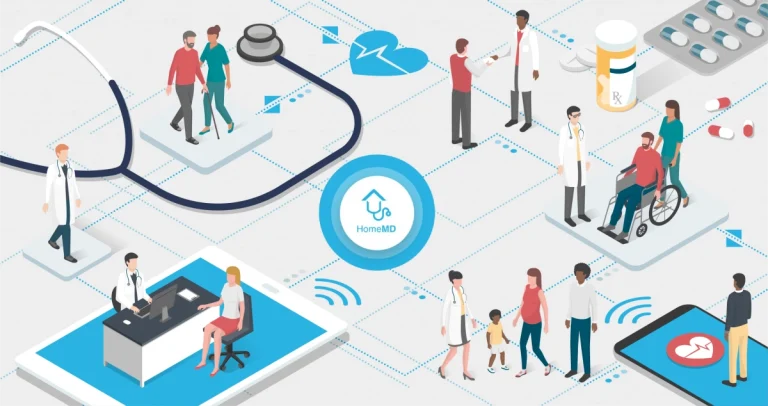Understanding Testosterone: Symptoms of Low Levels and What You Can Do
Understanding Testosterone: Symptoms of Low Levels and What You Can Do
Hormonal balance plays a crucial role in overall health and wellbeing. Among the key hormones that regulate numerous bodily functions, testosterone stands out as particularly significant—not just for men, but for women too. At Care& Family Health, we frequently see patients who experience symptoms of hormonal imbalance without recognizing the underlying cause.
Testosterone levels naturally fluctuate throughout life, but when they dip too low, the effects can impact everything from energy levels and mood to sexual function and physical appearance. Understanding the signs of low testosterone and the steps you can take to address this condition is essential for maintaining optimal health.
In Toronto’s fast-paced environment, many individuals attribute symptoms like fatigue or mood changes to lifestyle factors, potentially missing important hormonal imbalances that require medical attention. This comprehensive guide aims to help you recognize the symptoms of low testosterone and provide actionable strategies to address this common but often overlooked health concern.
What Is Testosterone and Why Is It Important?
Testosterone is a hormone primarily produced in the testicles for men and, in smaller amounts, in the ovaries for women. The adrenal glands also produce small quantities in both sexes. Often characterized as the hormone responsible for male sexual development and function, testosterone actually serves numerous essential functions in all bodies:
- Muscle mass and bone density maintenance
- Red blood cell production
- Mood regulation and cognitive function
- Fat distribution
- Sexual drive and function
- Energy levels
When testosterone levels are balanced, these functions proceed normally. However, when levels fall below the normal range, various symptoms can develop that affect quality of life and long-term health.
Normal Testosterone Levels: What’s the Baseline?
Understanding what constitutes “normal” testosterone levels is crucial for determining whether you might be experiencing low testosterone. In Canada, testosterone levels are typically measured in nanomoles per liter (nmol/L) or nanograms per deciliter (ng/dL).
For adult males:
- Normal range: 10.4-41.6 nmol/L (300-1,200 ng/dL)
- Low testosterone is generally considered below 10.4 nmol/L (300 ng/dL)
For adult females:
- Normal range: 0.52-2.4 nmol/L (15-70 ng/dL)
- Levels fluctuate throughout the menstrual cycle
It’s important to note that these ranges can vary slightly between different laboratories and medical facilities. Additionally, testosterone levels naturally decline with age, particularly after age 30 in men, when levels may decrease by approximately 1-2% per year.
Common Symptoms of Low Testosterone
Low testosterone manifests differently depending on sex, age, and individual health factors. Recognizing these symptoms is the first step toward addressing potential hormonal imbalances.
Physical Symptoms
In Men:
- Reduced muscle mass despite regular exercise
- Increased body fat, particularly in the abdominal area
- Decreased bone density and increased fracture risk
- Breast tissue development (gynecomastia)
- Hair loss beyond normal male-pattern baldness
- Hot flashes or sweats
- Reduced energy and physical stamina
- Sleep disturbances, including insomnia
In Women:
- Decreased bone density
- Muscle weakness
- Irregular menstrual cycles
- Changes in body composition with increased fat storage
- Reduced strength and endurance
Sexual Symptoms
In Men:
- Reduced libido (sexual desire)
- Erectile dysfunction
- Decreased sensitivity in genital region
- Reduced semen volume
- Fertility issues
In Women:
- Decreased sexual desire
- Reduced sexual satisfaction
- Vaginal dryness
- Discomfort during intercourse
Psychological and Cognitive Symptoms
In Both Men and Women:
- Persistent fatigue even after adequate rest
- Mood changes including irritability and depression
- Reduced motivation and drive
- Difficulty concentrating
- Memory problems
- Decreased confidence and sense of well-being
- Increased anxiety
If you’re experiencing several of these symptoms, especially the combination of physical and psychological changes, it may warrant a discussion with a healthcare provider. At Care& Family Health, our Nurse Practitioners provide unrushed appointments to thoroughly discuss these symptoms and determine appropriate next steps for diagnosis and treatment.
Causes of Low Testosterone
Understanding what’s behind declining testosterone levels can help guide treatment approaches. Low testosterone can result from various factors:
Age-Related Decline
The most common cause of low testosterone is the natural aging process. Beginning around age 30, testosterone production naturally decreases by approximately 1-2% annually. By age 70, many men have testosterone levels significantly below those of their younger years.
Primary Hypogonadism
This occurs when the testicles (in men) or ovaries (in women) don’t produce enough testosterone. Causes include:
- Genetic conditions (Klinefelter syndrome, hemochromatosis)
- Testicular injury or infection
- Cancer treatments like radiation or chemotherapy
- Autoimmune conditions affecting the gonads
- Undescended testicles
Secondary Hypogonadism
This develops when the pituitary gland or hypothalamus, which control testosterone production, don’t function properly. Potential causes include:
- Pituitary disorders or tumors
- Inflammatory diseases like sarcoidosis
- HIV/AIDS
- Medications, particularly opioids and glucocorticoid steroids
- Head trauma affecting the pituitary gland
Lifestyle Factors
Several lifestyle elements can significantly impact testosterone production:
- Obesity: Fat cells convert testosterone to estrogen, lowering testosterone levels
- Chronic stress: Elevated cortisol levels can suppress testosterone production
- Poor sleep quality: Testosterone is primarily produced during sleep
- Alcohol consumption: Excessive alcohol can reduce testosterone production
- Nutritional deficiencies: Particularly zinc, vitamin D, and magnesium
- Sedentary lifestyle: Lack of regular physical activity
- Over-training: Excessive high-intensity exercise without adequate recovery
- Environmental exposures: Certain chemicals and pollutants may act as endocrine disruptors
When to Seek Medical Attention
While occasional fatigue or changes in libido may not necessarily indicate low testosterone, persistent symptoms warrant medical attention. Consider consulting a healthcare provider if you experience:
- Multiple symptoms of low testosterone lasting several weeks
- Sexual dysfunction that impacts your relationship or well-being
- Significant fatigue that interferes with daily activities
- Noticeable changes in mood or cognitive function
- Unexplained weight gain or loss of muscle mass
- Bone fractures with minimal trauma, suggesting decreased bone density
At Care& Family Health, our Nurse Practitioners are experienced in diagnosing hormonal imbalances and can provide comprehensive care, often with same or next-day appointments at one of our Toronto locations. Unlike traditional walk-in clinics where you might see a different provider each visit, our model ensures continuity of care with your dedicated healthcare provider.
Diagnosis: How Is Low Testosterone Confirmed?
Diagnosing low testosterone involves more than just recognizing symptoms—it requires proper testing and evaluation to confirm the condition and identify underlying causes.
Blood Testing
The primary diagnostic tool for low testosterone is a blood test measuring total testosterone levels. For the most accurate results:
- Tests should be conducted in the morning (7-10 AM) when testosterone levels are naturally highest
- Multiple tests may be needed to confirm results, as levels can fluctuate
- Fasting before the test may be recommended
At Care&, our on-site lab services make this testing process convenient, eliminating the need to visit separate facilities for blood work.
Additional Testing
Beyond basic testosterone measurements, your healthcare provider may recommend:
- Free testosterone testing: Measures the biologically active testosterone not bound to proteins
- Luteinizing hormone (LH) and follicle-stimulating hormone (FSH) testing: Helps determine if low testosterone is due to primary or secondary hypogonadism
- Estradiol levels: Assesses whether testosterone is being converted to estrogen
- Complete blood count: Checks for anemia, which can be associated with low testosterone
- Thyroid function tests: Rules out thyroid disorders that may cause similar symptoms
- Prolactin levels: High levels can suppress testosterone production
- Bone density scans: Evaluates bone health if low testosterone has been present for some time
Comprehensive Evaluation
A proper diagnosis includes:
- Thorough medical history review
- Comprehensive physical examination
- Discussion of symptoms and their impact on daily life
- Assessment of medications that might affect hormone levels
- Review of lifestyle factors including exercise, sleep, and nutrition
Unlike rushed medical appointments where these evaluations may be cursory, our approach at Care& ensures your healthcare provider has the time to conduct a thorough assessment, allowing for more accurate diagnosis and personalized treatment planning.
Natural Approaches to Supporting Testosterone Levels
Before considering medical interventions, many patients can benefit from lifestyle modifications that naturally support hormone production:
Optimize Weight and Body Composition
Maintaining a healthy weight is crucial for hormone balance. Research shows that men who are overweight or obese typically have testosterone levels 30-40% lower than men in the healthy weight range.
Action steps:
- Focus on gradual, sustainable weight loss if needed
- Aim for a balanced diet rich in whole foods
- Consider consulting with a healthcare provider for personalized weight management strategies
Resistance Training and Exercise
Regular physical activity, particularly resistance training, has been shown to boost testosterone levels both acutely and long-term.
Effective exercise strategies:
- Incorporate weight training 2-3 times weekly, focusing on compound exercises that engage multiple muscle groups (squats, deadlifts, bench press)
- Maintain moderate-to-high intensity workouts with adequate recovery periods
- Include brief high-intensity interval training (HIIT) sessions 1-2 times weekly
- Avoid excessive endurance training, which may lower testosterone when done to extremes
- Aim for consistent activity rather than sporadic intense workouts
Nutrition for Hormone Health
Diet plays a significant role in supporting testosterone production:
Key dietary recommendations:
- Maintain adequate caloric intake: Severe caloric restriction can lower testosterone
- Balance macronutrients: Include healthy fats, quality proteins, and complex carbohydrates
- Focus on micronutrients: Zinc (oysters, meat, legumes), vitamin D (fatty fish, egg yolks, sunlight exposure), magnesium (dark chocolate, avocados, nuts)
- Include cholesterol: Despite its controversial reputation, cholesterol is a precursor to testosterone (eggs, shellfish)
- Minimize processed foods and sugar: Processed foods can negatively impact hormone balance
- Consider cruciferous vegetables: Broccoli, cauliflower, and cabbage may help optimize estrogen metabolism, indirectly supporting testosterone balance
Stress Management
Chronic stress elevates cortisol levels, which can suppress testosterone production. Implementing effective stress management techniques is essential:
- Regular meditation or mindfulness practice (even 10-15 minutes daily)
- Deep breathing exercises
- Adequate leisure time and hobbies
- Setting boundaries between work and personal life
- Spending time in nature
- Considering therapies like cognitive behavioral therapy for chronic stress
Sleep Optimization
Testosterone production peaks during REM sleep, making quality rest non-negotiable for hormone health:
Sleep hygiene practices:
- Aim for 7-9 hours of quality sleep nightly
- Maintain consistent sleep and wake times, even on weekends
- Create a cool, dark, quiet sleeping environment
- Limit screen exposure before bedtime
- Avoid caffeine after mid-afternoon
- Consider sleep-promoting supplements like magnesium if needed
Minimize Certain Substances
Some substances can negatively impact testosterone levels:
- Alcohol: Excessive consumption can reduce testosterone production and increase conversion to estrogen
- Recreational drugs: Many can disrupt hormone balance
- Environmental endocrine disruptors: Minimize exposure to BPA, phthalates, and certain pesticides
Medical Treatments for Low Testosterone
When lifestyle modifications aren’t sufficient, medical interventions may be appropriate. These should always be discussed thoroughly with a healthcare provider who understands your complete health profile.
Testosterone Replacement Therapy (TRT)
TRT is the primary medical treatment for confirmed low testosterone and involves supplementing the body’s natural testosterone production. Available forms include:
- Injections: Administered every 1-2 weeks
- Transdermal patches: Applied daily to the skin
- Topical gels: Applied daily to the shoulders, upper arms, or abdomen
- Oral medications: Less commonly used in Canada due to potential liver effects
- Subdermal pellets: Implanted under the skin every 3-6 months
Potential benefits of TRT include:
- Improved energy and mood
- Enhanced libido and sexual function
- Increased muscle mass and reduced body fat
- Better cognitive function
- Improved bone density
However, TRT requires careful consideration of risks, including:
- Potential cardiovascular risks in some populations
- Sleep apnea exacerbation
- Breast enlargement (gynecomastia)
- Reduced sperm production and potential fertility issues
- Increased red blood cell production (polycythemia)
- Acne or other skin reactions
- Worsening of existing prostate conditions
Alternative Medications
For patients who cannot or prefer not to use TRT, alternative options may include:
- Clomiphene citrate: Stimulates the body’s own testosterone production
- Human chorionic gonadotropin (hCG): Mimics LH to stimulate testosterone production
- Aromatase inhibitors: Reduce the conversion of testosterone to estrogen
Addressing Underlying Causes
In some cases, treating the underlying cause of low testosterone may restore levels:
- Pituitary tumor treatment
- Weight management programs
- Sleep apnea treatment
- Modification of medications that may affect testosterone
- Treatment for chronic conditions that impact hormone production
Living Well with Hormonal Changes
Beyond medical treatments, adopting a holistic approach to health can help manage the effects of hormonal changes:
Mental Health Support
Hormonal fluctuations can significantly impact mood and mental well-being. Strategies to support mental health include:
- Regular therapy or counseling
- Support groups for those experiencing similar challenges
- Mindfulness and meditation practices
- Maintaining social connections and support networks
- Setting realistic expectations for recovery
Relationship Communication
Hormonal changes, particularly those affecting sexual function, can strain relationships. Open communication with partners about changes you’re experiencing is essential:
- Discuss symptoms and treatments with partners
- Explore alternative forms of intimacy when needed
- Consider couples counseling if challenges persist
- Be patient with the adjustment process
Ongoing Monitoring
Whether pursuing treatment or making lifestyle changes, regular monitoring is crucial:
- Follow-up appointments to assess symptom improvement
- Periodic blood tests to check hormone levels
- Bone density measurements if indicated
- Cardiovascular risk assessments
- Prostate health monitoring for men
At Care& Family Health, our comprehensive health tracking through our mobile app helps patients monitor their progress and maintain awareness of important health metrics between appointments.
Preventive Strategies for Long-term Hormone Health
While age-related changes in hormone levels are natural, certain practices may help maintain optimal testosterone levels throughout life:
- Consistent exercise routines that include both strength training and cardiovascular fitness
- Body composition management focusing on maintaining healthy muscle mass
- Regular health check-ups to identify potential issues early
- Nutritional adequacy with particular attention to zinc, magnesium, and vitamin D
- Limiting environmental toxin exposure from plastics, pesticides, and industrial chemicals
- Balancing high-intensity training with adequate recovery to avoid overtraining
- Regular sexual activity, which may help maintain testosterone levels
Special Considerations for Women
While testosterone is typically associated with men, it plays an important role in women’s health as well. Women with low testosterone may experience:
- Reduced sexual desire and satisfaction
- Decreased energy and motivation
- Muscle weakness and reduced strength
- Changes in mood and cognitive function
- Bone density loss
Treatment approaches for women differ from those for men, with much lower doses and careful monitoring required. Women considering testosterone supplementation should work closely with healthcare providers experienced in women’s hormonal health to weigh potential benefits against risks.
The Importance of Personalized Care
Hormone health is highly individual, and what works for one person may not be appropriate for another. At Care& Family Health, our Nurse Practitioners take the time to understand each patient’s unique health profile, symptoms, and goals before developing a treatment plan.
Unlike traditional medical clinics where appointments may feel rushed, our model provides the time needed to discuss complex hormonal issues thoroughly. Through our comprehensive approach, patients receive individualized care plans that address both the symptoms and underlying causes of hormonal imbalances.
The Care& mobile app further supports this personalized approach by allowing patients to track symptoms, medication effectiveness, and relevant health metrics between appointments. This continuous monitoring helps our healthcare providers make informed adjustments to treatment plans when needed.
FAQ: Low Testosterone Questions Answered
How do I know if I should get my testosterone levels checked?
Consider testosterone testing if you’re experiencing multiple symptoms like unexplained fatigue, reduced sexual desire, mood changes, difficulty concentrating, or changes in body composition that persist for several weeks. At Care&, our Nurse Practitioners can help evaluate your symptoms during a comprehensive appointment and determine whether hormone testing is appropriate based on your complete health picture.
Can women benefit from testosterone treatment?
Yes, although in much lower doses than men. Women with documented low testosterone may experience improvements in sexual desire, energy levels, and mood with appropriate therapy. Treatment must be carefully monitored by healthcare providers experienced with female hormone balance, as excessive testosterone in women can cause unwanted masculinizing effects like facial hair growth and voice deepening.
Will testosterone therapy affect my fertility?
Testosterone replacement therapy typically suppresses natural testosterone production and can significantly reduce sperm production, potentially causing temporary or long-term fertility issues. Men who wish to preserve fertility should discuss alternative treatments with their healthcare provider. At Care&, our practitioners can help patients understand all the potential implications of hormone therapy and explore options that balance current health needs with future fertility goals.
How long does it take to see results from testosterone treatment?
The timeline for experiencing benefits from testosterone therapy varies by symptom and individual. Some effects, like improved energy and libido, may be noticed within a few weeks. Changes in body composition and muscle strength typically take 3-6 months to become significant. Improvements in bone density may require a year or longer. Regular monitoring through blood tests and symptom tracking helps ensure that treatment is providing the expected benefits.
How can I find a healthcare provider who understands hormonal health?
Finding a provider knowledgeable about hormonal health can be challenging in today’s healthcare environment. Look for healthcare professionals who take time to thoroughly discuss symptoms, order comprehensive testing, and consider both medical treatments and lifestyle interventions. Care& Family Health specializes in providing this type of comprehensive care with Nurse Practitioners who have expertise in hormone health and can offer appointment availability without the long wait times typically associated with endocrinology specialists.
Taking the Next Step in Your Hormone Health Journey
Understanding and addressing testosterone imbalances requires a comprehensive approach that considers your unique symptoms, health history, and lifestyle factors. Whether you’re experiencing potential symptoms of low testosterone or simply want to optimize your hormone health for overall wellbeing, working with knowledgeable healthcare providers is essential.
At Care& Family Health, our team of experienced Nurse Practitioners provides the time, expertise, and continuous support needed to navigate hormonal health effectively. Through our combination of unrushed appointments, on-site laboratory services, and integrated health tracking through our mobile app, we offer a convenient alternative to traditional medical clinics for Toronto residents seeking to address hormone-related concerns.
To learn more about hormone testing or to discuss your symptoms with a healthcare provider, consider scheduling an appointment at one of our convenient Toronto locations. Your journey toward hormonal balance and improved wellbeing begins with that first conversation.
Less Wait Time, More Face Time
Visit www.careand.ca to register
Contact Information:
📞 Phone: +1-647-951-4770
📧 Email: helpdesk@careand.ca
🌐 Website: www.careand.ca
Disclaimer:
This article is for informational purposes only and does not constitute medical advice. Always consult with a qualified healthcare provider for personal medical guidance. The information provided is general in nature and may not apply to individual circumstances.







